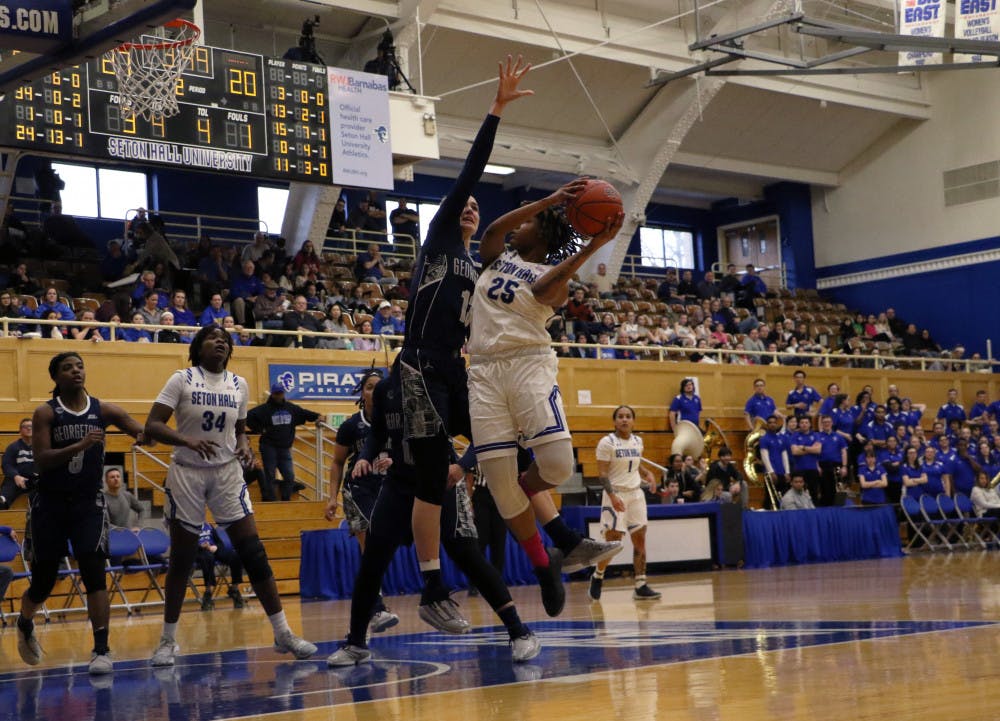We've detailed the ever-important relationship between Seton Hall and South Orange in recent issues, notably whether the university and the village can see eye-to-eye when it comes to students interacting in the community.
No doubt one of these interactions is patronage of the bars, pubs and restaurants that draw in students and even some faculty when the work day ends. But with bars near a college campus, the consumption of alcoholic beverages by underage students becomes a major issue.
Seton Hall clearly takes some steps to keep those who are underage away from any urge to sneak past the process of "getting carded" at local bars. AlcoholEdu remains a requirement for incoming freshmen, while programs from Housing and Residence Life, Student Activities Board and others try to give students an alternative activities at night. Additionally, desk assistants in the residence halls are instructed to enforce the "signing in" of alcohol by those over 21; HRL's regulations of beverages for personal consumption is one step toward avoiding keg parties in dorm rooms.
The assistants can also ask to check bags, an option that might have deterred some from hiding alcohol in backpacks or laundry baskets. But the fact remains that Seton Hall is a major university. It proudly boasts its standing on the national and even global level. With this reach, and a large population of students (both residents and commuters), the odds of underage drinking occuring are pretty good, to say the least.
Princeton Review ratings of Seton Hall in the past as a "party school" (as high as No. 4 in 1999 and more recently as No. 18 in 2004) may also boost these odds. These elements seem to point to the obvious – underage students will always try to sneak into bars, have a legal-age friend buy beer for them, or drink in "dry dorms."
It's a reality that comes with a campus like Seton Hall – giving the university an obligation to limit underage consumption as best as possible while educating students of the consequences for their choices, especially if those choices are against the law. Local drinking establishments must know this as well.
The relationship is symbiotic – bars must ensure all student-aged patrons are carded in exchange for the general boom in business on Thursday nights and the weekends that they can provide.
Seton Hall has been in South Orange for a long time. Businesses that enter the village within proximity of the campus even now for the first time must keep this relationship in mind. In searching for an answer to, and perhaps the "elimination," of underage drinking, proposals can range from a campus-wide policy against alcoholic consumption to the lowering of the legal drinking age to 18.
These issues are great for debate, but chances are that little will change in the coming weeks, months and maybe years. The bars and pubs have their responsibility to abide by the law.
Seton Hall has the responsibility of keeping its students educated and aware in the interest of safety and healthy town-gown relations. Both also have the collective responsibility to understand that they will fail at times, as other universities and bars across the nation do.
It's just part of the terrain when a major university and access to alcohol in bars are near one another.





